The 20 Foods You’ll Want to Avoid Once You’re Over 60
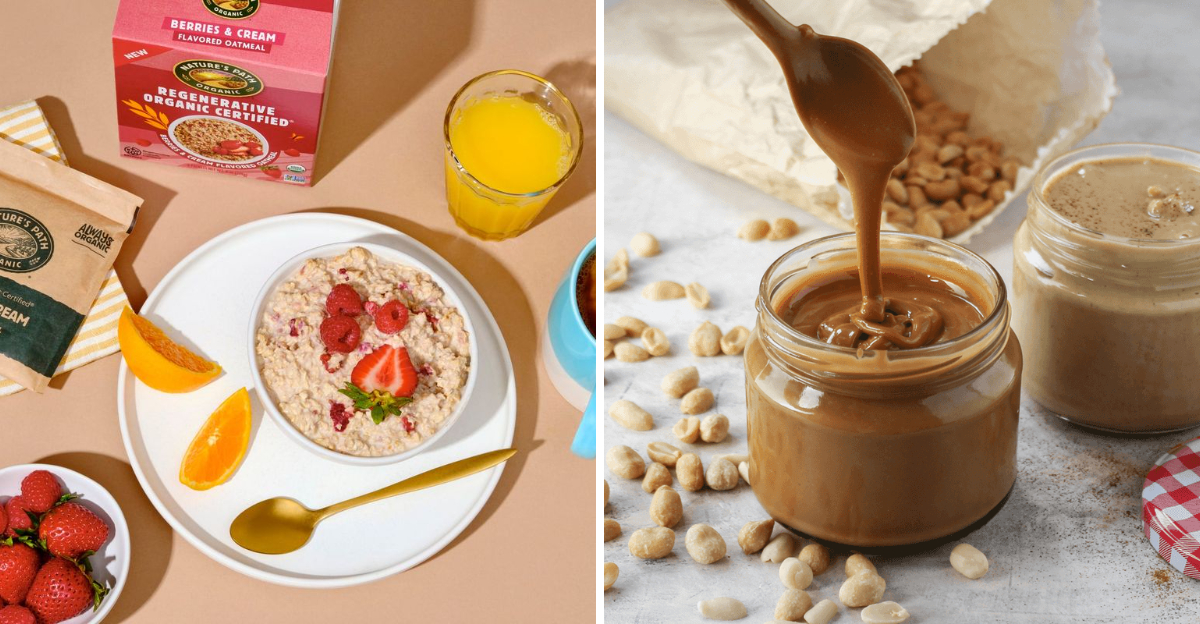
As we reach our golden years, maintaining a balanced diet becomes crucial for overall health and well-being. Certain foods, often beloved in our younger days, can present challenges for those over 60. From raising blood pressure to affecting medication efficacy, these foods may have adverse effects on aging bodies. This guide explores 20 foods that are best avoided by those embracing their sixth decade and beyond. By making conscious choices about what we eat, we can support our health, vitality, and longevity. Read on to discover which foods to approach with caution.
1. Processed Deli Meats

Processed deli meats, including ham, salami, and hot dogs, are convenient and flavorful. They often find their way into sandwiches and quick meals. However, these meats are high in sodium and nitrates, substances known to elevate blood pressure. In older adults, this can contribute to heart disease and other cardiovascular issues.
Consuming these regularly may increase your risk of developing hypertension. While they might be tempting for their ease, it’s wise to explore healthier alternatives. Opt for fresh, lean meats or plant-based proteins instead to support your heart health.
2. Fried Foods

Fried foods like crispy chicken wings and golden fries are undeniably delicious, yet they come with hidden risks. The trans fats found in these crunchy delights can lead to arterial plaque buildup, significantly increasing the risk of heart disease.
Indulging in these foods might satisfy a craving but could also pose long-term health challenges. For those over 60, it’s essential to limit the intake of such foods. Try baked or air-fried alternatives that offer the same satisfying crunch without the health risks.
3. Grapefruit

Grapefruit is a refreshing and juicy fruit that many enjoy for breakfast. However, for those over 60, it can interfere with medications such as those for blood pressure, anxiety, and insomnia. This interference can lead to enhanced or diminished effects of the drugs.
It’s crucial for older adults taking these medications to consult with their healthcare provider before consuming grapefruit regularly. Consider other fruits that don’t interact with medications, such as berries or apples, to avoid adverse effects.
4. Raw or Undercooked Meats and Eggs

Raw or undercooked meats and eggs can harbor harmful bacteria like Salmonella and E. coli, posing significant health risks. These foodborne illnesses can be particularly severe and dangerous for older adults whose immune systems might not be as robust.
To minimize risk, ensure meats are cooked to the appropriate internal temperatures and eggs are fully cooked. By practicing safe cooking methods, you can enjoy delicious meals without the worry of harmful bacteria.
5. High-Sodium Foods
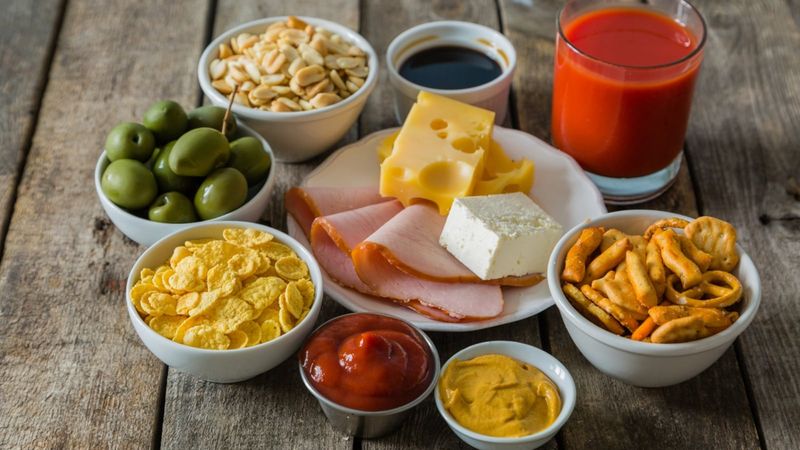
High-sodium foods, including canned soups and salted snacks, are common in many diets. However, excessive salt intake can lead to hypertension and fluid retention, issues that are particularly concerning for those over 60.
Reducing sodium in your diet can help manage blood pressure and promote better heart health. Opt for low-sodium versions or season your foods with herbs and spices to add flavor without the extra salt.
6. Sugary Beverages

Sugary beverages like sodas and sweetened juices are a sweet treat many enjoy. Yet, for those over 60, they can contribute to unwanted weight gain and exacerbate blood sugar issues, such as diabetes.
Switching to water, herbal teas, or unsweetened drinks can help manage weight and blood sugar levels. It’s a small change that can make a significant impact on overall health and well-being.
7. Artificial Sweeteners

Artificial sweeteners are found in many “sugar-free” products, offering a calorie-free sweetness. However, they may disrupt metabolism and gut health in older adults.
Some studies suggest a link between artificial sweeteners and changes in glucose metabolism, potentially leading to weight gain or digestive issues. Consider natural sweeteners like honey or maple syrup in moderation as healthier alternatives.
8. Alcohol

While a glass of wine or a cocktail can be a pleasant way to unwind, alcohol can negatively interact with medications and affect liver health, especially in adults over 60.
Excessive consumption can lead to balance issues and impact cognitive function. Moderation is key, and consulting with a healthcare provider about alcohol’s interactions with medications can ensure it’s enjoyed safely.
9. Caffeine
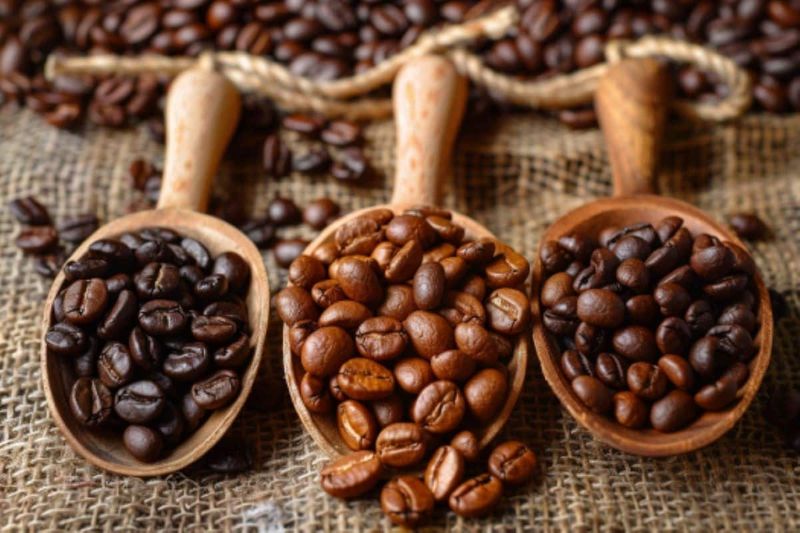
Caffeine is a beloved morning ritual for many, bringing alertness and energy. However, excessive intake can lead to sleep disturbances and increased heart rate, which are concerns for those over 60.
Balancing caffeine consumption by opting for decaffeinated beverages or limiting coffee intake can promote better sleep and cardiovascular health. Moderation ensures enjoyment without the jitters.
10. Unpasteurized Dairy Products

Unpasteurized dairy products may offer a nostalgic taste, but they pose risks of foodborne illness due to potential bacteria like Listeria. Older adults are particularly susceptible to severe effects from these bacteria.
Choosing pasteurized dairy ensures the same creamy taste minus the risks. Safety should always come first, especially when it comes to dairy choices.
11. Charred Meats

Charred meats, often the highlight of summer barbecues, can produce harmful compounds linked to cancer risk when cooked at high temperatures.
While the smoky, charred flavor is tempting, it’s wise to use cooking methods that avoid excessive charring. Marinating meats can reduce these harmful compounds, offering a safer path to enjoy your grilled favorites.
12. Refined Carbohydrates
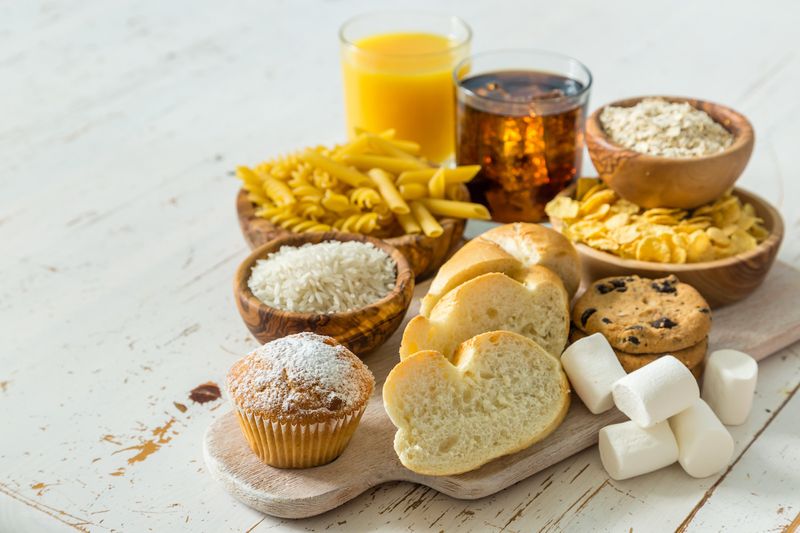
Refined carbohydrates like white bread and pastries may offer a delightful taste and texture but often lead to rapid blood sugar spikes. For those over 60, these foods offer little nutritional value and can affect blood sugar control.
Choosing whole grains instead provides fiber and nutrients that support digestive health and maintain stable blood sugar levels, enhancing overall well-being.
13. Flavored Instant Oatmeal
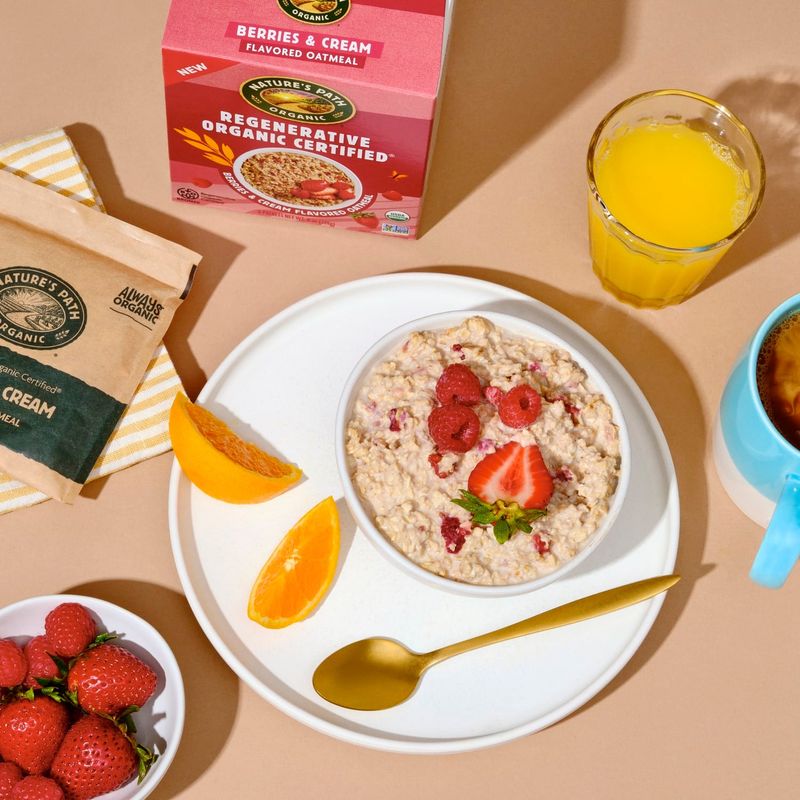
Instant oatmeal flavored with sugars and artificial ingredients may seem like a quick and healthy breakfast option. However, these added sugars can negate the health benefits of oats for older adults.
Opting for plain oatmeal and adding fresh fruits or a drizzle of honey ensures a nutritious start to the day without the sugar overload. This approach supports heart health and provides sustained energy.
14. Fat-Free Ice Cream
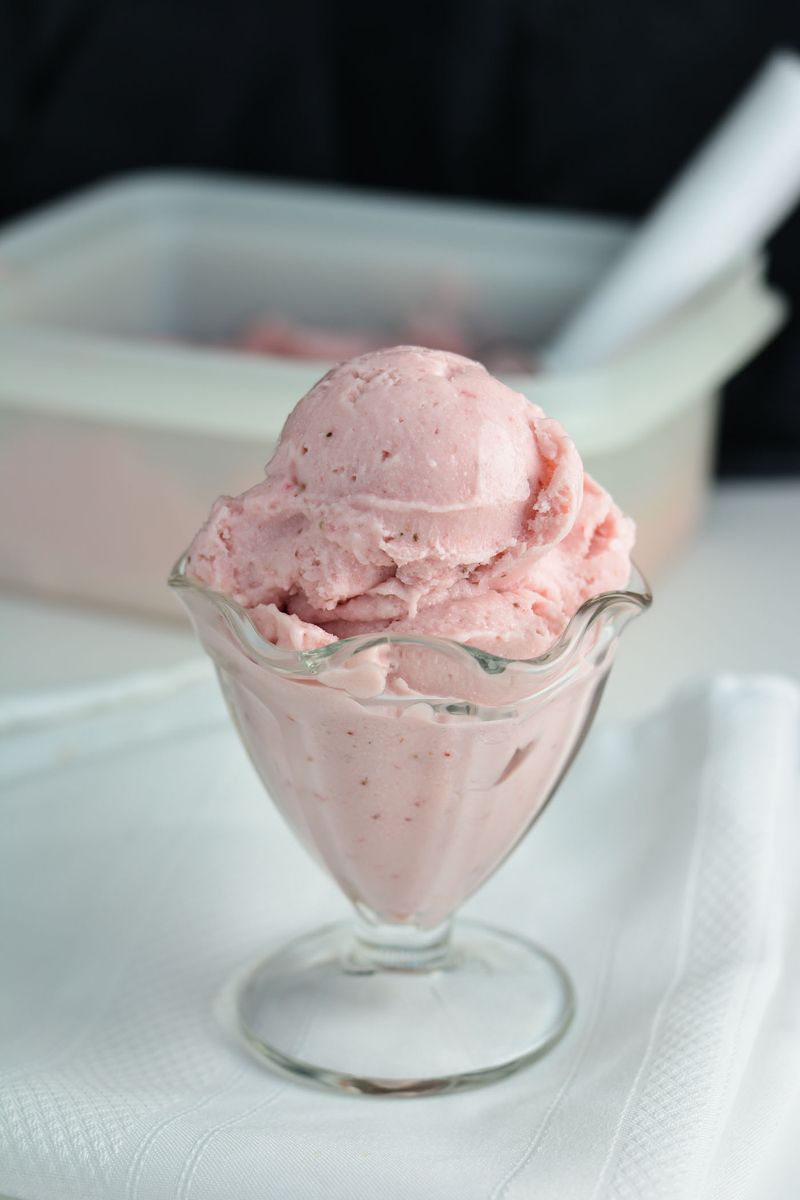
Fat-free ice cream might sound like a guilt-free indulgence, but it often includes added sugars and artificial ingredients to compensate for the lack of fat.
These additives can offer a sweet taste but may also lead to digestive discomfort. Choosing natural or low-sugar alternatives can satisfy your sweet tooth while supporting digestive health.
15. Reduced-Fat Peanut Butter
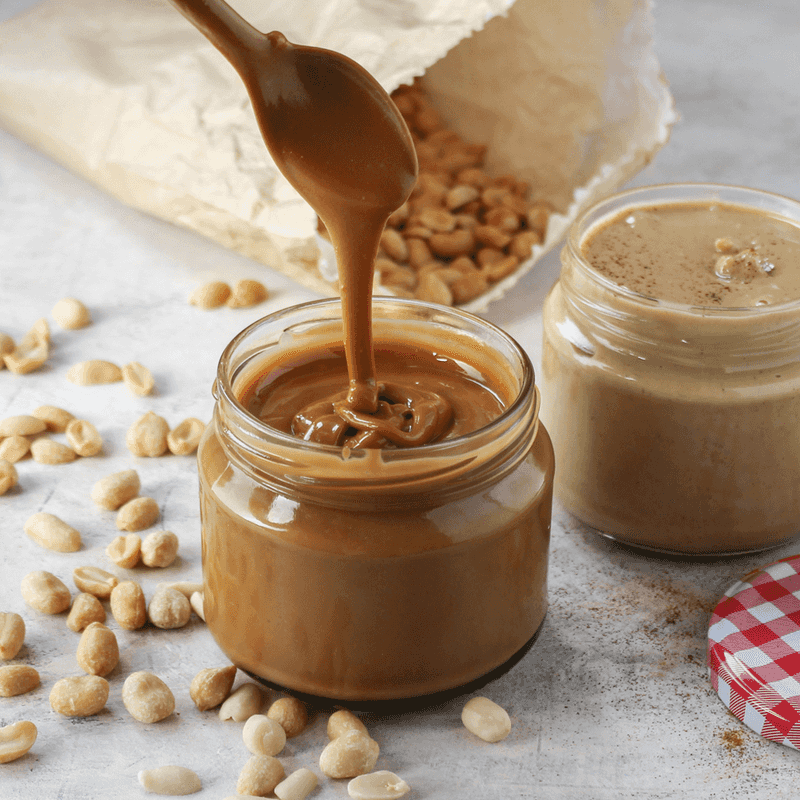
Reduced-fat peanut butter might seem like a healthy choice, but it often includes added sugars and fillers to replace the natural fats.
These additives diminish the nutritional quality of the peanut butter. Opting for natural peanut butter provides healthy fats and proteins without unnecessary extras, supporting heart health and offering a satisfying taste.
16. Gummy Candies

Gummy candies, though sweet and fun, are high in sugars and devoid of nutritional benefits. These chewy treats can contribute to dental issues, a concern for older adults.
Opting for naturally sweet snacks like fruits or nuts can provide satisfaction and nutrition without compromising dental health. It’s a choice that supports both taste and well-being.
17. Pre-Made Trail Mixes
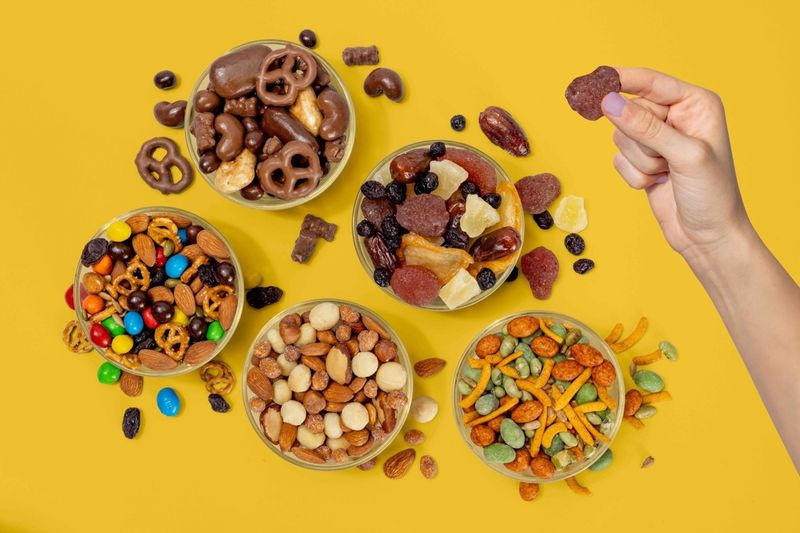
Pre-made trail mixes can be surprising with added sugars and unhealthy fats, despite their healthy reputation.
Reading labels carefully or making your own mix at home with raw nuts and dried fruits can enhance health benefits, offering energy and nutrition without the extra sugars and fats. It’s a snack that fuels your adventures without compromising health.
18. Frozen Meals

Frozen meals offer convenience but are often high in sodium and preservatives, potentially impacting heart health for those over 60.
Preparing meals at home with fresh ingredients ensures control over sodium and nutrient content, supporting heart and overall health. It’s a step towards a healthier lifestyle without sacrificing flavor or nutrition.
19. Fruit Danishes

Fruit danishes, with their flaky crusts and sweet fruit fillings, are a tempting pastry choice. However, they are typically high in sugars and saturated fats, providing little nutritional value.
Opting for whole-grain options topped with fresh fruits can offer flavor and nutrition, supporting heart health and satisfying sweet cravings.
20. Foods with Sugar Alcohols
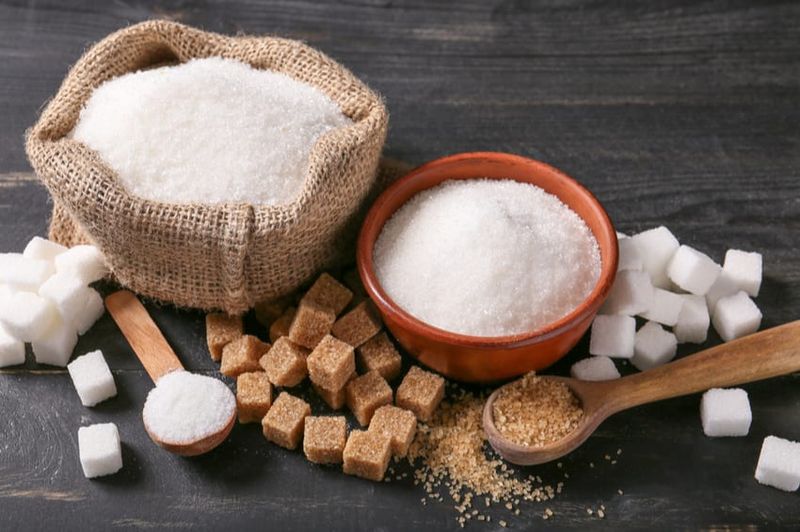
Sugar alcohols, common in “sugar-free” products, can cause digestive discomfort in some individuals. These sweeteners provide fewer calories but may lead to bloating and gas.
Reading labels and consuming these products in moderation can prevent discomfort. Choosing naturally sweet options can offer satisfaction without the digestive issues, promoting a comfortable and healthy lifestyle.
